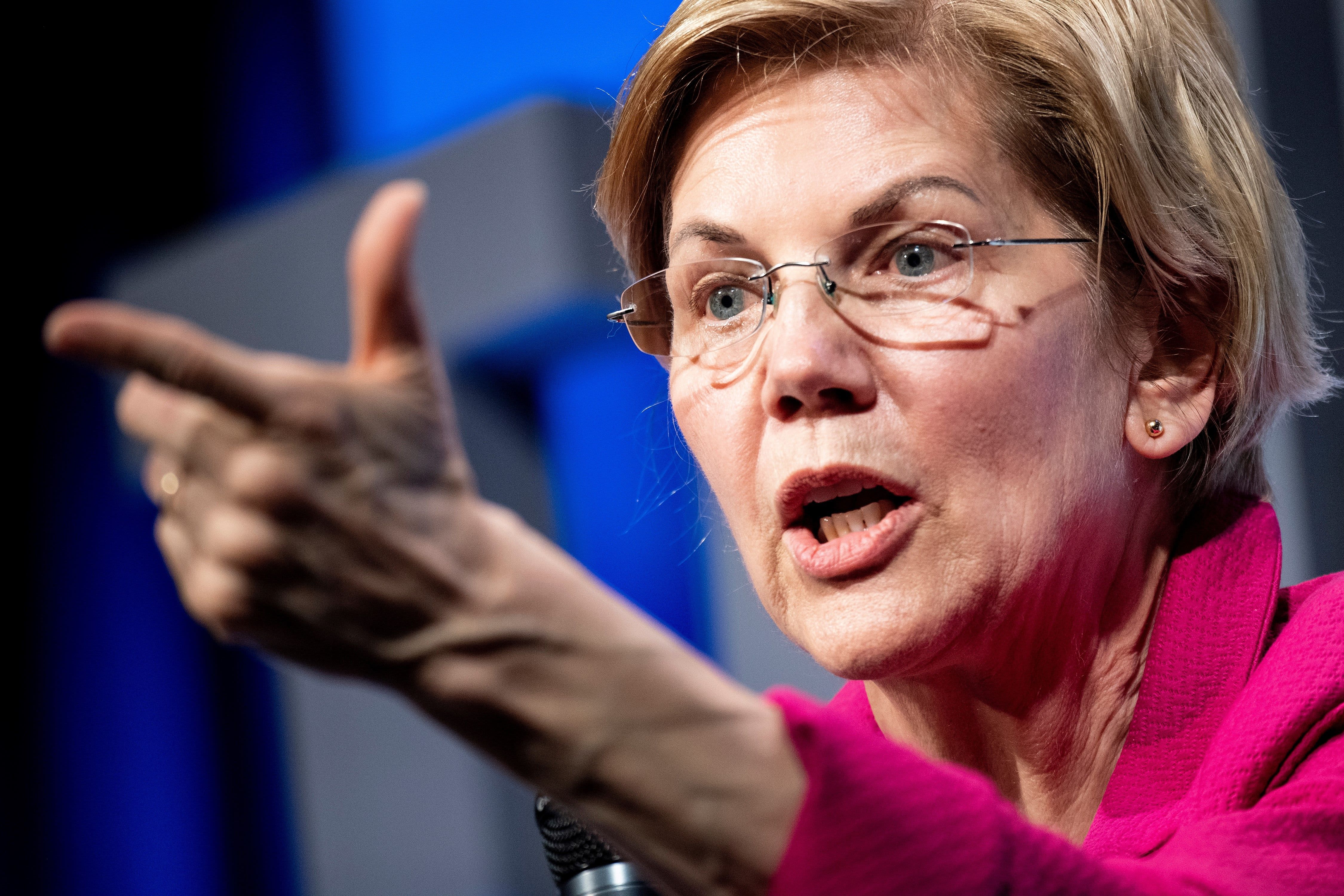Senator Elizabeth Warren (D-MA), a 2020 US Presidential hopeful, speaks during the ‘We The People’ Summit at the Warner Theatre April 1, 2019, in Washington, DC.
Brendan Smialowski | AFP | Getty Images
One Wall Street economist on Monday warned clients about the tax proposals touted by Democratic presidential hopefuls Elizabeth Warren and Bernie Sanders, saying investors should have “lots to worry about.”
Between Sanders’ plan that’s “designed to ‘tax and destroy’ large net wealth” and Warren’s overestimation of potential revenues streams to fund her policy goals, the policies of both should inspire unease “from various angles,” wrote Philipp Carlsson-Szlezak, chief U.S. economist at AB Bernstein.
It’s important for voters to differentiate between the proposals of each candidate, the economist added, for while Sanders believes America should not have billionaires, Warren’s plan views the fortunes of the ultra-wealthy as something to be skimmed, but ultimately retained.
“The wealth tax proposals of presidential candidates Sanders and Warren offer fundamentally different policy choices with diverging implications for tax burdens, wealth preservation and implicit wealth caps in America,” the economist wrote in a note.
Source: Bernstein
“The political objective of the Sanders wealth tax is to abolish the billionaire class over the long run and significantly reduce it in the medium run,” Carlsson-Szlezak added. “The political objective of the Warren wealth tax is to raise revenue to fund additional spending programs. This finds expression in Warren’s wealth tax schedule, which stunts wealth growth, but allows most estate sizes to persist or slowly rise.”
Carlsson-Szlezak listed several concerns voiced by voters and whether he believes the worries are valid or misplaced.
- Personal tax burden: The vast majority of Americans can relax on this issue since neither Warren’s nor Sanders’s plan impacts households with a net worth less than $32 million.
- Wealth Preservation: Voters are right to be concerned about their ability to preserve (or grow) their wealth over time, especially under Sen. Sanders’ plan that’s designed to grant a half-life of about 35 years to a fortune of $5 billion. Sen. Warren’s “skim but retain” plan would allow for modest growth.
- Wealth cap: More worried under Sanders, whose plan implies a long-run wealth cap of $700 million; Warren’s plan implies a wealth cap of $5.5 billion in the very long run.
- Fiscal deficit and program funding: The plans articulated by both candidates shouldn’t ease concerns about the deficit since the wealth tax would likely need to reach “much further” down the wealth distribution to make a significant impact. Both plans likely overstate revenue potential because they underestimate legal evasion.
The Bernstein economist did push back on some of Wall Street’s more apocalyptic concerns, writing that arguments about collapsing asset prices, lower capital formation, and the emasculation of American capitalism are “flimsy.”
“Removing ‘unlimited upside’ does sound un-American, but we’re inclined to believe that today’s occupants of college dorm rooms wouldn’t be dissuaded from taking entrepreneurial risk with a wealth tax,” he wrote.
